While Saudi’s oil industry continues to be an economic staple, it is also looking into alternative energy options, the most popular one being hydrogen technology. Aramco, the state-owned energy corporation has already begun heavily investing in the venture.
The step follows after substantial global and investor pressure to adopt more sustainable practices and look for alternatives that could act reduce the environmental impact caused by the widespread use of fossil fuels.
As technologies mature and become commercially available, Ahmad Al Khowaiter, Chief Technology Officer at Aramco believes, that the country has reached an “inflection point in the market for hydrogen.”
It is important to understand that hydrogen projects still use fossil fuels. This production of grey and brown hydrogen does produce greenhouse gases, but to combat this unwanted side effect, Saudi Arabia is focusing on carbon capture technology (CCT) which helps create “blue hydrogen”, a much cleaner product that does not cause carbon dioxide release.
Aramco’s urgency to build a market and capitalize on the innovative technology has left other countries lagging as it looks to establish a wider customer base by 2030.
A Bank of America study predicts that by 2050 blue hydrogen will have replaced a quarter of all fuels. To assert the same kind of dominance over the hydrogen market that it has over oil production, Saudi Arabia is making heavy investments towards its hydrogen production infrastructure.
The Kingdom is also looking into a third kind of hydrogen production, green hydrogen, which is made entirely from renewable energy resources like solar or wind power. However, according to the statistics provided by Aramco, green hydrogen is currently five times more expensive to produce than its blue counterpart. They hope to make costs more viable soon so that the use of non-renewable fossil fuels is eliminated.
Work on this has already started as Pennsylvania-based Air Products & Chemicals Inc. and Saudi’s ACWA Power International in the north-eastern city of Neom have invested 5 billion dollars to develop a plant solely devoted to the production of green hydrogen. This investment could see Saudi Arabia diversify its economy by leading the way in producing this industrial level, completely renewable fuel.
The race is on as Saudi Arabia looks to maintain its role as a premier energy supplier in the post fossil fuel economy.
SUMMARY
Saudi Arabia is already making significant headway in its transformation under Vision 2030, which aims to diversify the economy away from oil and establish the country as the foremost logistics, tourism, and business hub in the region.
With the Kingdom’s strategic geographical location at the crossroads of Africa, Asia, and Europe, heavy private and public investments in new airports, seaports, railway lines, and roads are being made to drive this strategy forward.
Post-pandemic, especially, the logistics sector is expected to play a major role in the growth of the economy. As businesses plan future growth, here’s everything you need to know about Saudi’s logistics strategy so that you can build robust supply chains that help with profitability and expansion.
INDEX
- Aim of Saudi’s logistics strategy
- Current state of Saudi’s transport and logistics sector
- Improvements transforming Saudi’s logistics sector
- Saudi’s logistics strategy’s achievements, progress, and impact on businesses
SAUDI LOGISTICS STRATEGY: CURRENT STATE, MAJOR ANNOUNCEMENTS, AND PROGRESS
Under Vision 2030, the Kingdom aims to emerge as a global logistics hub that connects continents. A comprehensive logistics strategy has been rolled out to achieve this goal—one that increases the sector’s contribution to the GDP as well as helps the Kingdom diversify its economy. Saudi has already achieved many of the targets that were set under its Vision 2030 logistics plan. For example, five new shipping lines have been added to the country’s ports to increase international connectivity, and efforts are being made to upskill professionals in the field with technical knowledge so that they can tackle future demands from the sector. There are also plans to establish a new airline and airport in the Kingdom.
Knowing what’s in store for Saudi’s logistics sector can help businesses plan growth strategies more effectively. Whether you are trying to strengthen local supply chains or expand into new territories, you stand to benefit from a more logistically empowered Saudi.
Here’s what you need to know.
1. Aim of Saudi’s logistics strategy

Saudi aims to become a leading global logistics hub both for regional and international routes. Over the last decade, the Kingdom has invested more than USD 100 billion in its transport and logistics infrastructure, making it one of the fastest-growing in the world. Following the launch of Vision 2030 in 2016, the Saudi Logistics Hub was established in 2017 to support the sector’s growth. A new transport and logistics strategy was rolled out in 2021 that builds on Saudi’s strategic geographical advantages by increasing public-private partnerships and bringing more international players into the Kingdom.
Establishing regional dominance
Saudi Arabia’s logistics market makes up over 50% of the GCC region’s total market. However, with the first-mover advantage currently with the UAE and Qatar, a bulk of logistics functions relating to supply chains, airline networks, and cargo volumes are routed from outside of Saudi. With the Kingdom going the extra mile to increase air cargo capacities through new warehouses, ports, and railway lines, plans are underway to make Saudi the leading regional mover for goods and commodities. Small, medium, and large businesses in the country can benefit from quicker supply chains and lower logistics costs by availing themselves of new opportunities in the sector.


Accessibility to new international markets and partnerships
The most recent Saudi Logistics Hub report highlights the country’s total exports at around USD 295 billion annually. Total imports were USD 135 billion and re-exports at USD 8.7 billion approximately. China, Japan, India, South Korea, and the USA were the top five export partners, while China, USA, the UAE, Germany, and India topped the import partners list. With infrastructure, the customs system, governance, as well as existing laws and regulations being improved to boost performance, the sector is opening up new business opportunities and international partnerships.
2. Current state of Saudi’s transport and logistics sector
Saudi Arabia has a regional logistics market share of USD 19 billion. There are a total of 40 air, land, and sea border crossings in the country. Out of these, 15 border crossings connect Saudi Arabia with nine other countries. Most of the domestic logistics are currently supported by the country’s network of around 70,000 km of intercity roads, highways that stretch 5,000 km, and approximately 145,000 km of unpaved roads. The country’s nine key ports have a cargo capacity of 257 million tons. What’s more, there are 232 berths and terminals, and the port breakbulk capacity is 615 million tons. Saudia, the Kingdom’s flagship airline, connects many international destinations through 28 airports in the country and handles around one million tons of air cargo and freight. The developing railway network includes 15 stations, covers over 5,000 km, and transports over nine million metric tons of chemicals and metals.


3. Improvements transforming Saudi’s logistics sector
Under Vision 2030, the Kingdom plans to transform the logistics sector and make it a global hub through a multipronged approach. Not only does it involve directing more investments towards roads, air transport, railways, and ports infrastructure, but it also focuses on improving processes such as customs clearances and training Saudi youth to meet the sector’s growing needs.
Air transport
Saudi Arabia is launching another airline to expand on the list of countries Saudia, the existing national carrier, is currently serving. What’s more, under the new transport and logistics strategy, an airport will be built in Riyadh. These steps are being taken to compete with other airlines in the region like Qatar Airways, Turkish Airlines, and Emirates, which are currently serving more routes and customers.
- Adding more destinations: The Kingdom is expanding its airline fleet to make it the fifth-largest in terms of international destinations served. Under the new strategy, international destinations are expected to increase from 39 to 250. Saudia will be reserved for pilgrims traveling to Mecca and Medina, while the new airline will be used to transport tourists and other visitors. The aim is to increase domestic passenger traffic from 62 to 127 billion passengers-km to bring in new opportunities for the Kingdom.
- Increasing freight and passenger capacity: By 2030, the airports’ cargo capacity is expected to increase from 0.8 million tons to 6 million tons, which includes both domestic and international capacities. Passenger capacity is expected to increase from 56 million to 204 million, out of which 116 million will be international travelers.
Increased logistics contribution to the GDP
Since one of the goals under Vision 2030 is to diversify the Kingdom’s economy away from oil, a multifaceted approach is being adopted to increase non-oil revenues. The transport and logistics sectors are already contributing around 6% to the GDP and the new strategy aims to raise it to 10%. Vision 2030 is expected to drive the sector’s contribution to non-oil revenues to SAR 45 billion (USD 12 billion) per year.


Upgrading ports infrastructure
To become the leading logistics hub in the region, the Kingdom is investing heavily in its port infrastructure to increase capacities. It is expected that by 2030 the capacity of general cargo at ports will increase by 29%.
- Making platforms more efficient: By the time Vision 2030 in realized in full, the Kingdom’s non-oil exports are expected to grow from USD 36 billion to USD 170 billion, an increase of 500%. Throughput of the export-related transportation will be doubled to 131 million tons. What’s more, the country aims to boost the re-export of goods from USD 5.6 billion to USD 140 billion. The throughput is also expected to go up ten times to 101 million tons, which means more goods will be able to move through Saudi much faster.
- Improving domestic connectivity: In terms of domestic connectivity, which plays a major role in the logistics sector, the country has plans to build a robust capillary distribution system. Under Vision 2030, its throughput is expected to go up from 1.4 billion tons-km to 375 billion tons-km and 62 billion passengers-km to 127 billion passengers-km.
Investing in railways infrastructure
Given the growing demand for passenger transport and domestic freight, the Kingdom has plans to invest more in the railway infrastructure as well as high-speed rail links. The railway lines that are being expanded include:
- A line to service Makkah and Medina from Jeddah
- New railway service between Riyadh and Qassim
- The Dammam Port line which connects Hofuf with the Port of Dammam
- A passenger rail line linking Dammam with Riyadh, via Abqaiq and Hofuf
- A freight line between Dammam and Riyadh, via Abqaiq, Hofuf, Haradh, and Al Kharj


Extending road networks
The Kingdom is directing significant investments towards the improvement of road infrastructure, border crossings, and ring roads to cater to increasing parcel volumes and to make sure that deliveries are reliable and timely. There are also plans to develop a new motorway that will connect Oman and Saudi Arabia, lowering trading costs and lead times.


Improving warehousing logistics
The Kingdom is also taking steps to help manufacturers, retailers, wholesalers, and 3PLs with their warehousing needs. Currently, more domestic companies are handling the country’s warehousing logistics where their main clients include construction materials and industrial end-users. Post-pandemic, Saudi’s warehousing logistics have been further optimized, and by October 2020 around 3.9 million containers were being handled. Under the new strategy, many new logistics platforms are being launched in the Kingdom and are expected to reduce the cost of warehousing by around 12%.
Faster customs clearance
Investments in infrastructure are being complemented with improvements in processes such as customs clearance. To make customs clearance faster, the Kingdom launched the Fasah program in 2017, which initially allowed people to complete the process in 7 to 10 days. By 2019, custom clearance times had been reduced to within 24 hours. The goal for 2022 is to bring down the time to around two hours. Such steps are making it easier for businesses using 3PLs and 4PLs to use digital portals to cut down waiting times at customs and further optimize their supply chains and processes.
Strengthening the local workforce
To ensure that there are plenty of workers with the technical knowledge and skills required for careers in the logistics sector, the Kingdom recently established the Saudi Logistics Academy. Through a number of local and international partnerships, the academy will offer a wide variety of specialized training programs. The academy will also create around 350 new jobs for Saudi men and women.
4. Saudi’s logistics strategy’s achievements, progress, and impact on businesses
Whether you are starting a business in Saudi Arabia for the first time or want to streamline existing supply chains, you can benefit and grow your operations by getting a better understanding of Saudi’s logistics services. With the new logistics strategy coming into effect, the Kingdom is leaving no stone unturned in its efforts to help businesses and industries reach their full potential in the country. Here’s how some of the aforementioned developments across logistics can help you optimize your freight solutions:
Quicker customs processes
Through the Fasah program, the customs clearance time is currently under 24 hours and there are plans to bring it down to around two hours by 2022. Paperwork has been reduced from 12 documents down to two. Duration of stay at ports has been reduced from 14-16 days to 4-5 days for containers and the duration of free storage at ports has been cut down from 10 days to 5 days. Additionally, electronic transfers for payments have made processes faster and more secure. The process of transiting and crossing operations from one customs port to another has also been made much easier. What’s more, the Kingdom has digitized many new logistics processes and introduced multiple reforms. The recently launched e-platforms Fasah, Washaj, Naqel, Wasel, and Bayan are helping logistics companies coordinate the movement of goods into and across the country with more efficiency, reducing waiting time and costs for organizations.
Airports and port expansions
Many airports including Al Jouf, Al Qunfudhah, and Abha are being developed in the country. Neom Bay Airport, which will cater to the futuristic city’s residents and visitors, is already operational. Another terminal was added at King Khalid International Airport in Riyadh to increase its passenger capacity to 12 million. Recently, Jeddah’s King Abdulaziz International Airport was made operational as well. In Dammam, which is the gateway to the country’s key industrial areas, King Fahd International Airport received a new terminal for cargo.
Saudi has also increased container goods capacity at Duba Port with an additional berth and King Abdulaziz Port’s capacity for bulk cargo with two new berths. As a result, transshipment at Saudi ports went up by 1.73%. The Kingdom has also taken steps to reduce costs. For example, an initiative has been rolled out to support national product exports, which has reduced costs by more than 50%. Reducing handling container fees at the King Fahad Industrial Port in Yanbu and the traffic rate for loading empty containers at Jeddah Islamic Port is also being hailed as a positive development. Additionally, the ports sector is benefiting from increased private sector participation, which went up from 30% to 53% under the new plans.
These steps are not only boosting the Kingdom’s freight logistics – they are also reducing timelines for cargo transport while simultaneously opening new territories within Saudi for trade and transportation.


Railway tracks and road expansions
One of the key achievements in the railway sector was the integration and privatization of national railway operations. In 2017, the Kingdom announced the launch of the North Network passenger service, which includes 15 railway stations. A new mineral railway line has also been introduced to not only replace hundreds of thousands of truck trips but also to reduce the carbon footprint created by the transport of materials. To improve the country’s freight logistics, the Saudi Land Bridge project, covering 1000km, is facilitating the cross-country movement of goods.
Similarly, the Kingdom has successfully rolled out around 57 road projects that span 1700 km. An investment of USD 1.1 billion is being directed towards the maintenance and operation of the country’s road projects. A further investment of USD 1.3 billion has been allocated through 88 contracts for the development of new routes. The Kingdom also recently inaugurated the Raqa’i Land Port, which is situated at the Saudi-Kuwaiti border.
Role of the Saudi Logistiat platform
Under the Saudi Logistiat initiative, the Kingdom has launched logistics platforms across the country that can help operators carry out various logistics and distribution activities. Saudi Logistiat expects to launch 60 logistics platforms. Two such platforms, the Integrated Logistics Bonded Zone (ILBZ) at Riyadh Airport and Al Khomra, have already been established. Through these logistics platforms, the initiative can facilitate freight forwarders, 3PLs, custom brokers, retailers, wholesalers, manufacturers, couriers, trucking companies, as well as other stakeholders in carrying out tasks more easily and in a more coordinated fashion.
To find out how these developments across Saudi’s logistics sector can impact your organization or to help you streamline your supply chains, get in touch with us.
The Kingdom recently launched the Saudi Logistics Academy to equip the Kingdom’s youth with the technical knowledge and skills needed to pursue a career in the logistics sector. It’s another important step to further transform the country’s logistics sector and establish the Kingdom as a global logistics hub.
Saudi Logistics Academy has stepped into multiple local and international partnerships to help students participate in a range of specialized training programs. What’s more, this initiative has also led to more job creation in the Kingdom, and as many as 350 Saudis of both genders will be employed under the agreements with the private sector.
According to Rumaih bin Mohammed Al-Rumaih, the chairman of the board of directors of the Saudi Logistics Academy’s launch and of the Public Transport Authority, (at the time of writing) students will be able to take these programs during the upcoming semester. He went on to say that the academy not only supports Vision 2030 goals, but will also boost the Kingdom’s logistics performance.
The seven sectors that the Saudi Logistics Academy is targeting include air transport, warehouse management, e-commerce, land transport, shipping and export, international trade, maritime and ports transport, and postal logistics services.
Saudi students have the option to opt for long training programs, which span three semesters, or take part in specialized executive programs, international specialized professional certificate programs, or remote training programs and short courses. The academy will announce the registration for these programs and courses on sla.edu.sa.
New Logistics Body
Saudi Arabia’s cabinet has also approved the creation of a new logistics body, which will be established within the Ministry of Transport. The decision was taken during a virtual session chaired by King Salman, king of Saudi Arabia. Under Vision 2030, a new transport and logistics strategy was unveiled earlier this year. It aims to establish Saudi Arabia as the leading transportation and logistics hub in the Middle East and connect continents, including Africa, Asia, and Europe.
By 2030, the Kingdom will double its annual air cargo capacity to 4.5 million tons. Rail tracks will also be increased and the ports of the country are being linked to the Red Sea. The Kingdom has already launched five new shipping lines for regional markets, the Indian subcontinent, and North Europe.
The plan also includes establishing a new airline and airport in Saudi Arabia to increase the number of destinations from 39 to 250 and become the fifth largest airline in the world. The existing airline, Saudia, will transport pilgrims to Mecca and Medina, and the new airline will be used for other travelers, including businessmen and tourists. With these steps, the Kingdom aims to secure a top ten ranking on the global Logistics Performance Index.
Another objective of Vision 2030 is to diversify Saudi Arabia’s economy and increase non-oil revenues. The new strategy is expected to boost the contribution of the transport and logistics sector to the GDP from six to ten percent, which means SAR 45 billion ($12 billion) annually. The Saudi Crown Prince has announced plans to make an investment of 550 billion riyals ($147 billion) in the sector, which will play a key role in the transformation of the Kingdom.
With the recently launched national strategy for transport and logistics, Crown Prince Mohammed bin Salman aims to transform Saudi Arabia into a transportation and logistics hub that will connect continents. Several steps are being taken as part of the efforts to make Saudi the foremost destination in the region. Here are some of the key announcements about the new transport and logistics plan.
Launching a new airline
The Kingdom already has a national carrier called Saudia, but under the new strategy, another airline will be launched and expanded to service more routes and countries. The plan also includes the construction of a new airport in Riyadh. While Qatar and the UAE have the first-mover advantage and competing with them is likely to be challenging, efforts are being made to make the new airline a formidable regional operator. When it comes to the number of countries an airline is serving, Emirates, Qatar Airways, and Turkish Airlines are ranked among the top ten globally. Under the new transport and logistics strategy, the Kingdom aims to make its airlines the world’s fifth largest by the number of countries served.
Currently, the Kingdom’s aviation flagship, Saudia, flies to 39 destinations, but the goal is to reach over 250 destinations across the globe. The new airline will serve tourists as well as people traveling for business, whereas Saudia will be used by those who are making a pilgrimage to Mecca and Medina.
Increasing non-oil revenue
A multipronged approach will be used to boost the sector’s contribution to GDP from 6% to 10%. The transport and logistics sector is expected to contribute SAR 45 billion ($12 billion) to non-oil revenues annually by the time Vision 2030 concludes.
Top logistics destination in the region
Currently the UAE is the main transport and logistics hub of the Middle East. Besides Emirates, one of the top-ranking airlines in the world, the country’s transport and logistics sector is also supported by DP World, which caters to 10% of the world’s total container traffic and has terminals and ports in over 80 countries. Saudi’s Crown prince plans to improve the Kingdom’s ranking on the Logistics Performance Index from 55 to the top ten. To achieve this ambitious plan, the capacity of the air cargo sector will be doubled to 4.5 million tons of freight per year. Other targets include increasing rail networks and making sure that the Kingdom’s Arabian Sea ports are linked to the rail lines connecting to the Red Sea.
Boosting employment
Creating more jobs in the logistics and transport sector is one of the main aims of Vision 2030, which predicts the Kingdom is create 150,000 new jobs annually. Already, there has been a drop in unemployment from 12.6% in the last quarter of 2020 to 11.7% in the first quarter of 2021, the lowest figure in almost five years.
Next step on the Vision 2030 ladder
Under Vision 2030, the Kingdom will undergo a transformation in terms of economic diversification, job creation, and repositioning both regionally and internationally. As part of this plan, a comprehensive transport and logistics strategy has been rolled out to make the Kingdom the region’s hub operating at the crossroads between Europe, Africa, and Asia. Plans are also underway to increase the sector’s contribution to the GDP from 6% to 10% by 2030.
In a move to mobilize the Kingdoms private sector and negate over-reliance on oil export, Crown Prince Mohammed Bin Salman has committed to a USD $1.3 trillion (SAR5 trillion) investment drive. The huge pledge has been made with the intent to significantly increase the private sector’s GDP contribution by 2030.
Due to its significant population, prominent hydrocarbons industry and progressively diverse non-oil sector, the Kingdom of Saudi Arabia is one of the world’s wealthiest nations. IMF figures show the Kingdom’s GDP to be larger than that of advanced economies such as Sweden, Norway, and Austria, as well as African giants Egypt and Nigeria.
In a televised announcement, the Crowne Prince described the role of private sector investment as part of a massive SAR 12 trillion plan to jump-start a post-oil era and solidify diversification efforts.
The SAR 12 trillion will include approximately 3 trillion riyals from the country’s sovereign wealth fund and 4 trillion riyals as part of a new Saudi investment strategy.
“What we’re trying to create is growth in Saudi Arabia: growth in GDP, more jobs in Saudi Arabia, more income to the Saudi government, and a better life for Saudis,” Prince Mohammed Bin Salman said in March during a briefing with journalists in Riyadh.
“The new Shareek (Partner) program will help the private sector create hundreds of thousands of new jobs and will boost the contribution of the private sector to GDP by up to 65% by the end of the decade,” the Prince said.
Twenty-four firms including Saudi Basic Industries Corp., Almarai Co., Saudi Telecom Co., and National Shipping Co. have agreed to join the plan, contributing SAR 5 trillion (USD$1.33 trillion) of domestic capital spending over the next 10 years.
Previous reports have noted Saudi Aramco’s intention to sell more shares as part of plans to bolster the nation’s sovereign wealth fund – the Public Investment Fund (PIF) being the main vehicle for boosting Saudi investments both at home and abroad.
The Crowne Prince described how the PIF is working with other sovereign wealth funds in the region on a fund called ‘Invest In Saudi’ that would be sized at between SAR 500 billion to SAR 1 trillion.
Within the GCC, Saudi Arabia is home to the largest stake of private wealth and accounts for approximately 44% of regional capital with additional deployments of wealth in overseas markets.
The Saudi PIF is similarly backing domestic mega-projects including the flagship Red Sea Project, the multi-billion dollar Neom economic zone, and the entertainment hub at Qiddya.
Strong Credentials
True to national aspirations, Vision 2030 stresses the value of building a vibrant and prosperous private sector, highlighting it as one of the Kingdom’s national priorities.
Given the importance it represents, further efforts at diversification are likely as the Kingdom looks ahead to a greener, sustainable future as an influential G20 major economy.
Saudi Arabia has made no secret of the fact that attracting greater foreign investment is a crucial part of its Vision 2030 plan.
In the past decade, the Saudi government has spent $30 billion to build six economic cities across the Kingdom, with the objective to enhance the competitiveness of the Saudi economy, attract foreign investment, and create opportunities and jobs for young Saudis.
In order to double down on these efforts and reduce Saudi’s reliance on its energy sector, the Kingdom launched a new logistics zone open to private investors in the Red Sea port city of Jeddah.
Mawani, the Kingdom’s Port Authority said the al Khomra zone would offer opportunities to investors on a lease basis and would support activities around freight distribution, shipping, and the transport of goods.
The zone spans over 2.3 million square meters and is strategically located on the Red Sea coast, not far from Jeddah Islamic Port. As the largest logistics zone in the country, Minister of Transport Nabeel al-Amudi is confident that this development will create 10,000 direct jobs and firmly cement Jeddah’s position as a truly global logistics hub linking the Middle East, Africa, and Europe.
The development of the al Khomra zone is part of the broader National Industrial Development and Logistics Program (NIDLP), which aims to create 1.6 million jobs and attract investments worth 1.6 trillion riyals ($427 billion) by 2030. Saudi Arabia intends to have the private sector operate much of its transport infrastructure, including air and seaports, with the government maintaining its role as regulator.
The development of the Al-Khomra zone, as well as the expansion of multiple air-freight stations, signifies the intent to improve domestic infrastructure and enhance Saudi Arabia’s capacity for export. Additional projects, including the Saudi Railways Expansion Programme, would see easy access for Riyadh to the Red Sea Coast.
With more than 12% of global maritime trade passing along its western seaboard, Saudi Arabia aims to fully leverage its strategic location to its advantage, potentially making al Khomra an important hub on the Silk Road maritime trade route launched under the Belt and Road Initiative (BRI).
2020 proved to be anything but business as usual. It was a year that saw unprecedented challenges as GCC states adapted to the fallout of the global pandemic. Within the Kingdom, the results of decisive measures taken early on in the crisis are starting to show. Green shoots of recovery are beginning to emerge, with confidence in Saudi Arabian businesses rising to levels not seen since January 2020.
With improvements in output and orders, businesses can take some comfort in the turnaround. After a difficult year brought about by the spread of COVID-19, employment figures have also made a welcome return to growth, reassuring policy-makers that the economy is heading in the right direction.
PMI Reading.
Bolstered by output and new business growth, Saudi Arabia’s PMI Purchasing Managers’ Index saw a consistent monthly rise throughout the last quarter of 2020. With anything in the index over 50 points signifying a positive trend, the index has registered above the 50.0 no-change mark for three months in a row, highlighting a sustained economic recovery and a strong end to the year for the non-oil private sector.
Continued public spending coupled with an improving health situation could nudge growth higher, with index points expected to climb in 2021.
Getting back to work.
Encouraged by the easing of lockdown measures, in addition to the arrival of the vaccine, some businesses have spoken of concerted efforts to raise inventories and increase private sector investment in anticipation of a quickened uptick in 2021.
Government-led stimulus and relief efforts have seen encouraging results, notably with a rise in employment and acute demand growth. Recent Labour Reform initiatives strive to further develop local job markets and create a pool of highly skilled talent.
At the virtual G20 Summit, King Salman bin Abdulaziz Al Saud sought to stress the importance of job protection and support for labor markets throughout the COVID-19 crisis and beyond. Hosted from Riyadh, participating leaders and invited guests were presented with the theme of Realizing Opportunities of the 21st Century for All.
Building on Vision 2030’s blueprint to launch new growth sectors, Saudi Arabia is expected to see increased global investment across a significantly broader economic base. The next generation of Saudi youth will be offered the opportunities and equipped with the skills to help them realize their individual potential.
Businesses around the world will be hoping that 2021 will see a year of beneficial transformation and rapid recovery. Engineering a significant rebound will require much more than a vaccine. However, the bold steps taken by policymakers within the Kingdom are sure to set the Saudi economy on the right path and in good shape for achieving its 2030 Vision.
As part of the Kingdom’s push to further diversify its economy, Riyadh is set for a once-in-a-lifetime development project that will see it recognized as one of the world’s largest city economies by 2030. By investing over USD$23billion, the Kingdom seeks to more than double its population, to 20 million by 2030, and attract talent and investment from across the region.
Core to its Vision 2030 strategy is the Kingdoms focus on funding new human futures by improving quality of life, driving environmental and economic sustainability, and developing new sectors and jobs.
As part of this strategy, Riyadh will be essential, setting the groundwork for job creation, innovation and education, and forming a highly skilled workforce and population with a standard of living second to none.
To date, Riyadh is responsible for about 50 percent of the Kingdom’s non-oil economy. Additional factors further solidify the notion that the Saudi capital ideal for robust development. Not only is the cost of job creation in Riyadh 30 percent less than that of other cities in Saudi, but also the cost of real estate and infrastructure development is also significantly less, bolstered by the cities sound planning and management.
Speaking at the 4th Edition of the Future Investment Initiative Forum in January, Saudi Crown Prince Mohammed bin Salman made clear his views on the impact vibrant city economies can make globally and the role Riyadh is set to play on the international stage.
Over the next quarter of 2021, with sights clearly set on forming a truly global financial hub, numerous investment projects will be announced for Riyadh, with a focus on banking, logistics, biotech, and the digital economy.
In addition to creating thousands of new jobs in the capital, the huge investment will also contribute towards an integrated approach to wellness, health, sports, culture, and the arts, underpinned by a commitment to environmental sustainability.
These redefining projects are to be financed through direct investment from the national sovereign wealth fund, the Saudi Royal Commission as well as investment from abroad. In 2019, King Salman unveiled plans to launch four wellbeing projects for Riyadh which would transform the capital and bring it on a par with some of the world’s most liveable cities – King Salman Park, Sports Boulevard, Green Riyadh, and Riyadh Art.
Upon completion, King Salman Park will be the largest city park in the world, featuring a Royal Arts complex, museums, sports venues, water features, and an 18-hole Royal Golf Course.
Within the coming decade, by dramatically increasing green spaces and recreational areas as well as installing 1,000 works of art across the city, the Saudi Royal Commission aims to bring Riyadh to the forefront of Vision 2030’s Quality of Life Program whilst solidifying its future amongst the top ten largest city economies.
Shipping, simply put, is the physical movement of goods from point A to point B. It can be referring to something as simple as an item being shipped to your door from your neighboring city, to tons of goods being moved halfway across the world. There are of course various modes of shipping, intricacies of the movement itself, and a variety of complications that can arise. The term ‘shipping’ was once solely used to refer to transport by sea, but now the meaning often extends to include many different modes of transportation, and often intermodal transportation, which refers to various different modes being used in the process of transporting goods. These may be utilized independently or combined for a single consignment, depending on the type of goods and where they’re being shipped.
Let’s take a look at them individually.
Ground Shipping:
Ground shipping tends to consist of small or medium sized groups of your everyday goods that are more often than not shipped within one country. It is a convenient and cost efficient means of transport, consisting of large trucks driven by professional drivers. However, with larger goods going longer distances, the option can be found lacking.
Rail Shipping:
Rail shipping, which consists of goods being transported by rail, usually caters to larger goods. It deploys both rail and road services, but is not as often utilized as others, as it’s mostly limited to distances within a country, and other modes such as air are more time efficient for goods in smaller sizes.
Air Shipping:
Air shipping is the most efficient way of transporting small-to medium-size amounts of similarly sized goods as far as time is concerned. Special Freight Planes are used in the process, and these goods can be transported all over the world via daily cargo flights.
Sea Freight Transportation:
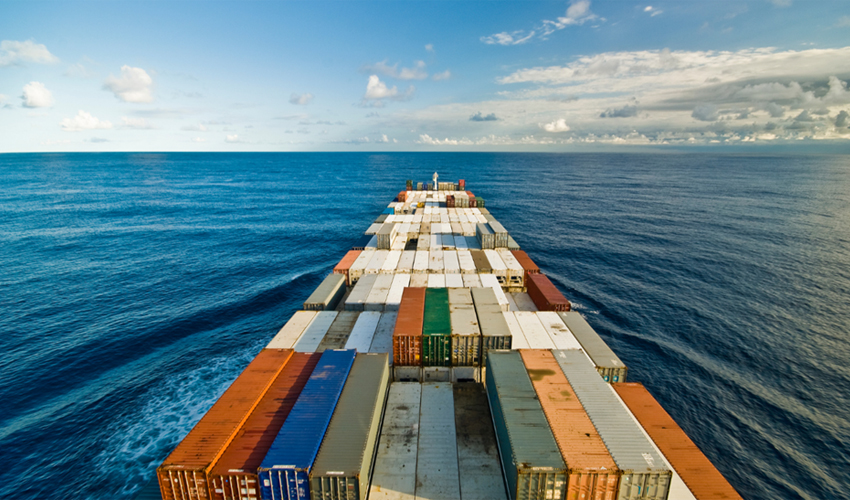

For bulk goods or large volumes that are to be moved over longer distances, and across countries, sea freight transportation is best. Ships are deployed solely for this purpose and the goods are secured in containers so as to move them safely from their point of origin to their destination.
Of course, whilst this can sound relatively easy, a complex underlying process exists, with various impediments needing to be dealt with, especially when shipping globally. The intricacies and some of the parties involved in global shipping include:
- The shipper and the consignee are in layman terms, the sender and receiver of the goods. The shipper needs to prepare the goods, verify the relevant documents, confirm the licenses and deal with the other parties involved in the shipping process to move the goods to the consignee. The consignee or the receiver, in cases of global shipping of cargo, needs to be physically present and deal with their share of documents so as to receive the cargo.
- The shipping company is the owner of the vessels required for transporting the goods, and are usually contacted when a bulk of goods are to be sent over large distances.
- The carrier is the shipping line that does the transporting of the cargo from location A to location B. They are responsible for the handling of the goods and their containers are used in the process of shipping.
- Custom agents often handle the legal formalities of the clearance of customs, as is often required for goods sent internationally.
From a business perspective, one may initially resort to cut costs by handling shipping themselves but the procedure to be followed and the intricacies of shipping makes it difficult for one to do so and once the business venture grows, it’s no longer feasible or economically viable to handle the shipping of goods themselves. In such a circumstance, it’s in their best interests to seek the services of a shipping or a global shipping company.
Global Shipping Companies
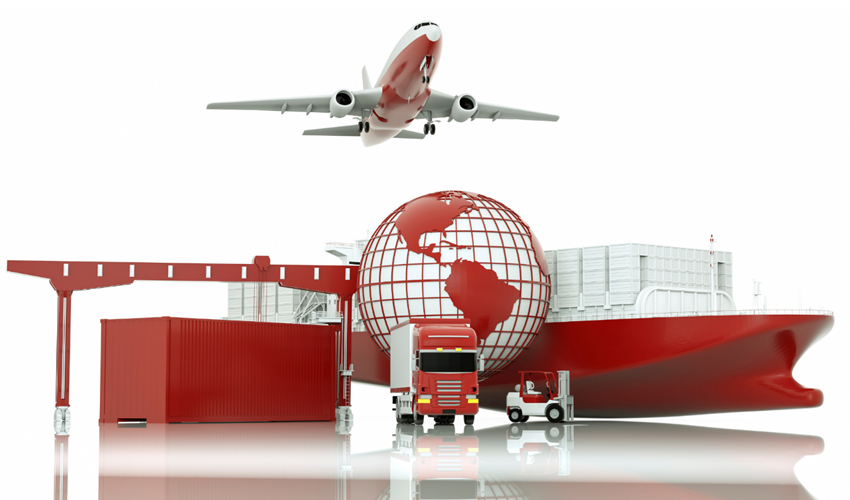

Global Shipping Companies are pivotal to the process of shipping and are often required by businesses and individuals who want to avoid the difficulties associated with the lengthy and extenuating process of shipping, and to save time and energy in the process. Global shipping companies play many roles and are a key link between the many different entities working to get goods to their destination. These companies are no longer simply a fleet of transport vehicles but rather a sophisticated logistics provider with shipping services of many different types and handling a multitude of processes from transportation to the management and storage of goods.
They also handle the communication between different parties and the coordination and confirmation of deliveries. They make sure that the entire chain functions optimally as an integrated whole, whilst providing cost efficiency and solid customer service. The management of this requires the optimal use of networks and ideal communication from the suppliers, senders, manufacturers, warehouses, etc. so that every step of the shipping process is done in the most efficient and successful way possible.
A huge benefit of engaging these global shipping companies include saving time and avoiding unnecessary costs, such as hiring staff, purchasing vehicles and maintenance. Often, in managing a global supply chain, companies are required to follow a process of conforming to hundreds of laws and for this fact alone, it’s always advised to employ the expertise of these shipping companies.
There are other important factors to consider when deciding whether or not to use an experienced logistics/shipping company, which include:
- Documentation


In global shipping, one of the most difficult processes is confirming the legalities and documentation of goods to be shipped. This is because each country has different export requirements and documents for different types of goods to ensure the legal safety of the sender as well as the receiver. Permissions, declarations, etc. are required, which are all handled by a global shipping company as their legal teams draft and arrange everything necessary for this process to go as smoothly as possible.
- Shipping Services
Ocean or international shipments consist of various procedures from the transit to the clearance that are all efficiently handled by global shipping companies. In the cases of bulk shipping by sea, various different containers are arranged depending on the type of goods such as:
- Full Container Loads (FCL):
FCL refers to shipments in which goods in a container are owned by a single party.
- Lesser Container Loads (LCL):
LCL refers to multiple good from various shippers packed together.
- Reefer containers:
Reefer containers are containers that involve the transport of temperature-sensitive cargo, due to which they’re refrigerated.
- Out of Gauge (OOG):
OOG goods are goods in bulk that don’t fit in standard containers and therefore require modification.
- Flat rack containers:
Flat rack containers, not too dissimilar in purpose to OOG containers, are containers that only have walls at the short ends. This proves to be of utmost importance when cargo needs to be loaded from the sides or from the top due to their irregular dimensions.
Bearing in mind the challenges posed by international shipping, which include the heaviness of the cargo, the security considerations of the shipping, protection of said goods and so on, these containers make handling, including loading and offloading, as easy and safe as possible.
Furthermore, in successfully delivering the consignment to the receiver, often intermodal deliveries are required where various different modes of transport are arranged by the companies.
- Customs and Duties
Customs clearance is pivotal when it comes to international shipping and the movement of goods from a country to another. Global shipping companies not only know the ins and outs of custom regulations of different countries, but also strive to stay on top of any and all changes and updates in regulations. They are, as a result, poised to efficiently handle tasks such as arranging and managing the paperwork, paying all the relevant duties for the goods to be moved and keeping clients informed throughout the process.
- Storage
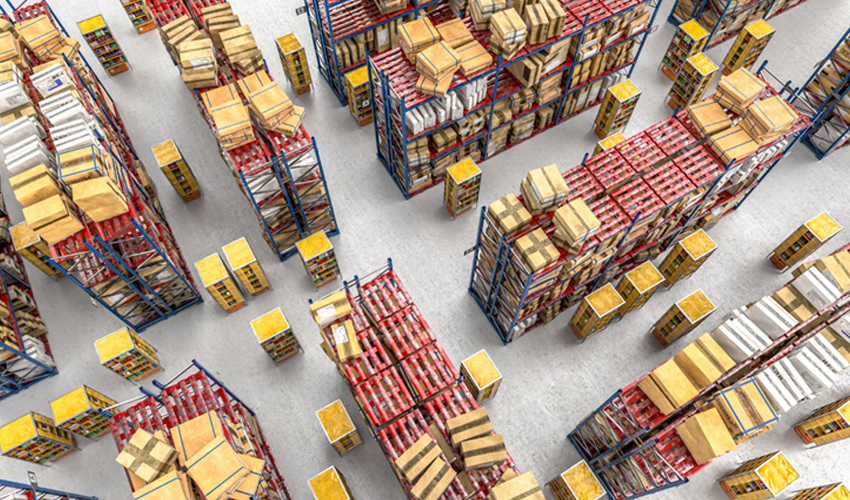

Modern global shipping companies, along with notifying and keeping you aware at every moment as to where your consignment is, also manage the storage of goods in warehouses. To ensure proper storage of goods, global shipping companies are increasingly integrating technological solutions into their storage procedures and protocols. Most shipping companies and services now deploy computerized systems that track incoming consignments and automatically assign the correct spaces, and make sure that the warehouses used, include services that cater to the customers and the safety of their goods.
- Outbound Procedures
In an attempt to cut costs, some shipping companies tend to slack off when it comes to ensuring efficient execution of outbound procedures. This, however, ends up costing them in the long run. Proper and careful execution of outbound shipping processes including packing, checking and loading of goods is crucial in ensuring the quality and safety of goods.


Experienced, global shipping companies understand this and refuse to compromise on any part of the supply chain. When it comes to the last leg of shipping, they make use of nuanced and often state-of-the-art procedures to ensure smooth shipping and deliveries.
Evolution of Global Shipping
Outsourcing transport and shipping is an increasing trend worldwide. Using such global shipping companies can be vital to saving a business’s time and costs, as they can handle every detail pertaining to the process of shipping. This increasing reliance on global shipping companies can be attributed to multiple factors, including:
Globalization
Since the turn of the 19th century, the world has become more connected and has collectively advanced at an accelerated pace. With the onset of the industrial revolution came rapid development of modern technology, a continued rise in global population, and a substantial increase in consumerism, all of which have given way to globalization.
Economies around the world have been experiencing spectacular growth which has led to average household incomes reaching newer levels by the year, consequently increasing the demand for higher quality goods. Domestic production in countries has long failed to meet the demand of the local economy, and global trade has flourished as a result. Globalization has, therefore, given rise to demand for quality B2B and B2C global shipping services.
As more and more businesses start operations in multiple regions, and global economies become more integrated as a result, the importance of the global shipping industry continues to rise. We have now reached a point where global economic prosperity relies heavily on consistent and smooth global shipping operations.
Modernization of Shipping


Malcolm McLean’s original container had a capacity of 226 twenty-foot equivalent units (TEU), which is a standard unit used for the measurements of such containers. Scientific developments and the competitiveness of the shipping industry has led to the largest container ships now transporting over 20,000 TEU containers of good around the world at once. Moving billions of dollars of goods per shipment create huge economies of scale, which further allow companies to lower consumer prices. Ships have also increased in size, and due to these huge vessels, shipping costs have reduced. Speed has also substantially increased due to the invention of the screw propeller for ships, while aeronautical developments have led to air freights being more convenient and cost efficient than ever. The designs of air and ocean freight have also changed radically, reducing costs and fuel consumption and boosting the safety of transport and shipping at the same time, while specialization of different modal transports has further promoted the growth of the shipping industry.
Automation in Global Shipping
There are various automation techniques that have been introduced in shipping, which include, but aren’t limited to, self-loading/unloading systems, computerized navigation, and the Global Positioning System (GPS). Automation has led to a substantially smaller number of crew needed and at the same time conforms to the safety standards set out worldwide. This also leads to a further decrease in costs, increase in shipping and more efficient work overall. Shipping companies that embrace automation are, therefore, able to take on a higher workload, expand their operations, and compete on a global level.
Future of Shipping


The shipping industry has come a long way in recent decades. It has grown into a huge and complex industry where global shipping companies are constantly striving to become cost-effective and gain strategic competitive advantages in order to meet the needs of today’s commercial marketplace while also ensuring financial success.
The industry has also not been a stranger to technological disruption and has had to adapt to modern times and adopt forward-thinking, tech-driven business practices. With advancements in technology rolling out at a rapid pace, and a rapidly changing market (especially in light of the Covid-19 pandemic), the global shipping industry needs to continue to evolve and adapt the way it does business in the coming few years.
Here are some trends that give us insight into the future of the global shipping industry.
- Further Technological Advancements
With continued technological development the future of global shipping will see much more scientifically sophisticated techniques of shipping. Warehouses and other storage mediums are expected to further evolve, such as automatically identifying and catering to goods’ storage requirements. Furthermore, transport vessels such as ships and planes will have better networks of sensors pertaining to all aspects of operations, and will hopefully even detect and fix/maintain areas that need it. Better vessel-to-land operations will also eventually result in operations primarily conducted by a land-based team.
Some Global shipping companies have already started to embrace artificial intelligence and predictive data analytics to strengthen their supply chains, forecast market demand, predict market shifts, and develop their overall business strategies. In coming years, we will see data analytics play a larger role in the streamlining of global shipping operations and increased automation of shipping business processes to boost efficiency.
Development in A.I. technology has also caused excitement with the prospect of autonomous shipping. In fact, the first un-manned shipping vessel is set to sail this year and its success is set to open the door to further research and development.
The benefits of tech-driven shipping operations will ultimately be passed on to the final consumers and businesses in the form of lower costs, timely deliveries, increased safety of their goods, and greater efficiency overall.
- Bigger Shipping Services
Improvements in transport technology and structure will lead to even bigger ships, planes and better designed trucks. Manufacturers, owing to lower transport costs, will also potentially be able to invest in better production methods, improving their products and thus resulting in even more orders.
- Greener shipping
The worldwide trend and pressure of decreasing the carbon footprint has led many ships and other modes of transport to include technologies that use low carbon fuels in order to positively impact the environment.
Shipping companies are looking to make the switch to renewable energy sources to power their marine and land transportation fleets. For example, solar and wind power are being tested for their effectiveness in making transportation via sea more sustainable. The shipping industry is also committed to reducing its dependency on oil and is testing greener fuel alternatives. Liquified natural gas (LNG) is one alternative that is expected to gain mass adoption in the future. Use of LNG promises a reduction of around 25% in CO2 emissions.
As the world moves away from fossil fuels, arguably the greatest challenge for the industry is reducing its reliance on fossil fuels and incorporating greener technology.
Logistics and transport companies form an integral part of a business’s supply chain. Depending on the requirements, logistics support can range from freight brokerage/forwarding to third-party and fourth-party logistics services—where an organization’s core functions are also managed by an outside provider. As well-handled logistics can potentially change the operational efficiency and overall profitability of a business, it is essential to undertake a thorough vetting process before entering into a contract with a partner.
If you are looking for a logistics company in Saudi Arabia to help with your freight, transportation, warehousing, and inventory needs, you need to ensure that you find a trustful and reliable logistics collaborator with whom a long-term business relationship can be built.
This article will highlight what you need to know so that you can make an informed decision.
Things to look for in a professional logistics company in Saudi Arabia
The freight and logistics market in Saudi Arabia is going through a period of ambitious expansion with a CAGR of 7.35%. This means that there are a lot of new players in the market advertising features and qualities that they may not be able to deliver on and execute. That is why when you are researching for a logistics company in Saudi Arabia, you need to look beyond the tall claims and marketing hype to find a professional partner.
There may be a lot of names that pop up when you look for logistics support in the Kingdom but finding one that meets your needs and offers customizable solutions is not an easy task. It’s challenging and time-consuming work and there are not many logistics providers that can offer seamless supply chain support as well as meet your budgetary requirements. Not only do you need to find a company that takes care of your goods and products, but you also need an organization that has Saudi, regional, and international logistics experience.
You must partner with a logistics company that has a wide network of international and regional transportation, warehousing, and logistics options. That is the only way a logistics firm can activate both local and international networks to mitigate the impact of disruptions to your business.
Listed below are five things to keep in mind that can help you differentiate between a good Saudi logistics company and someone claiming to be one:
- Logistics experience in the industry:
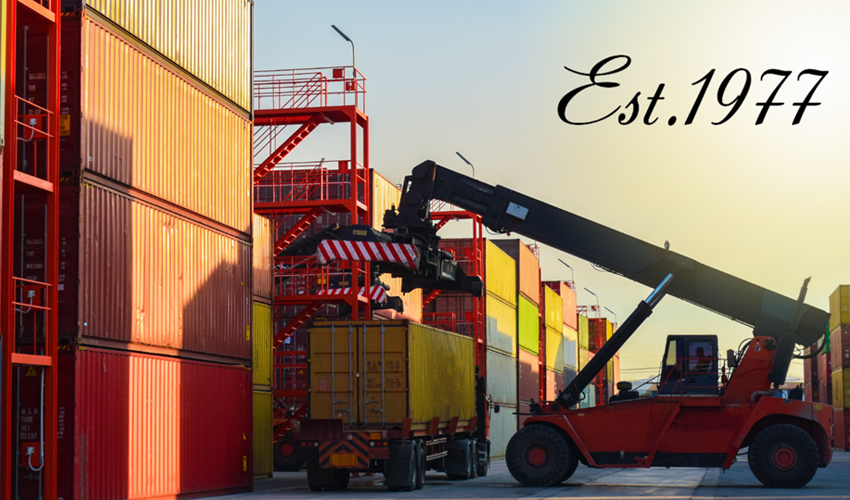

Logistics management is both an art and a science. A professional logistics company in Saudi Arabia works in a way that optimizes inventories and route management through advanced systems. From years of working in the Kingdom, they have also established well-equipped, connected logistics networks across wide territories. This familiarity with markets places them in a better position to handle disruptions with out-of-the-box solutions and alternative arrangements.
What’s more, as a logistic company develops integrated value delivery chains, its portfolio of services expands to meet the needs of its clients—winning it not only repeat business but also brand value. It’s important to remember that not every logistics company in Saudi Arabia can make these critical processes work for themselves and their customers. It’s good to keep in mind that poor logistics can reduce customer satisfaction and seriously impact your finances.
- Logistics in Saudi Arabia—number of services offered:


Supply chain efficiencies are paramount for the optimal functioning of an enterprise. Businesses rely on efficient logistics processes to operate lean management methodologies, deliver value to customers, and remain competitive in the market.
A transportation and logistics company in Saudi Arabia that offers a wide range of services is a much more reliable option for an organization with a future-oriented approach. A logistics company that provides a wide range of services on a single platform can also meet a client’s demands to scale to their business model. Moreover, when a logistics company is involved across multiple players in the supply chain, it can reduce inefficiencies by identifying areas of delay and mismanagement.
What’s more, a logistics company in Saudi Arabia that offers consultancy services is better placed to improve managerial decision-making processes in a client’s business. Similarly, a vast, well-equipped, and connected freight network built through heavy investments of capital and labor can provide integrated logistics support to an organization’s import export functions. To ensure that you have reach across all parts of a country, logistics companies also need to have hubs near ports and inland territories. SBT, an established logistics company in Saudi Arabia for example, has a presence not only in the main cities of Riyadh and Jeddah but also operates hubs from Jizan, Khobar, and Sakakah. It also has a wide network of port and inland warehouses, as well as transportation infrastructure at its disposal that can service every nook and corner of Saudi Arabia. These resources help SBT adjust and improve each link in the supply chain to provide a business seamless support. By employing a combination of sea, air, and land freight options, powered by the latest technologies, SBT ensures that customers’ goods arrive when and where you need them.
It pays to remember that these competencies cannot be substituted because they are developed and strengthened over years of market familiarity and experience. That’s why, when you are making a decision it’s important to choose a logistics and transport company that can scale to cater to your business’s needs. This consideration is especially important for growing organizations that need partners who can envision their future needs before they are manifested.
- Logistics in Saudi Arabia—a commitment to customer service:


A commitment to customer service is one of the key features that businesses should be looking for in their logistics service provider. An arrangement with a logistics partner is a long-term decision, the consequences of which will invariably have a lasting impact on your enterprise. It is imperative, therefore, that your logistics company in Saudi Arabia be on the same page as you. As a business owner, you do not want to be contractually bound by an arrangement that fails to meet your changing requirements. You want a logistics partner that values your needs and responds just as well to your apprehensions.
That’s why, regardless of the size of your business, a reliable and reputable logistics company in Saudi Arabia needs to offer assistance 24/7 and answer queries as they arise. Whether you are a new shipper who needs a large number of goods delivered or you are a seasoned client with questions about a shipment, you need to know that your logistics partner can provide complete transparency and accountability.
One good way to ascertain this is to look for client testimonials. As a part of your market survey, you may also want to find out what areas of logistics services a company specializes in and then reach out with questions. How quickly a logistics company gets back to you will also give you an indication of their work ethic.
- The reputation of a logistics company in Saudi Arabia:


As we’ve mentioned early, logistics in Saudi Arabia as a sector is going through a phase of serious expansion. With Vision 2030 encouraging heavy investments in infrastructure, construction, and development, there are a lot of new players in the market. That’s why when you are looking for a logistics partner, one of the most important factors to keep top-of-mind is the reputation of the logistics company you plan to hire. It is important to understand how established they are in the market and how much experienced they have in meeting client needs. More importantly, you need to review how they are regarded by both peers and customers in the industry.
A reputable logistics company has to have an irreplaceable wealth of knowledge that enables them to anticipate unexpected hurdles and plan for contingencies. It also places them in a better position to think ahead, activate alternative networks, and manage the safe and timely movement of goods to meet client deadlines.
To be able to judge the reputation of a prospective partner, find out about a company’s experience handling logistics for a business similar to yours. Their feedback will give you better insight than any advertisement or marketing. You may also choose to ask industry peers about the range of their logistics’ providers expertise, responsiveness, transparency, integrity, and truthfulness. Keep in mind that in competitive markets like Saudi Arabia, well-established logistics and transportation companies take years to build their reputation. There’s no price for this experience. If you are an organization with a long-term view you want a logistics partner that knows not only the ins and outs of the Kingdom but also understands the business environment and mindset of operators and network providers in the country.
- A logistics provider’s infrastructure and technological savviness:
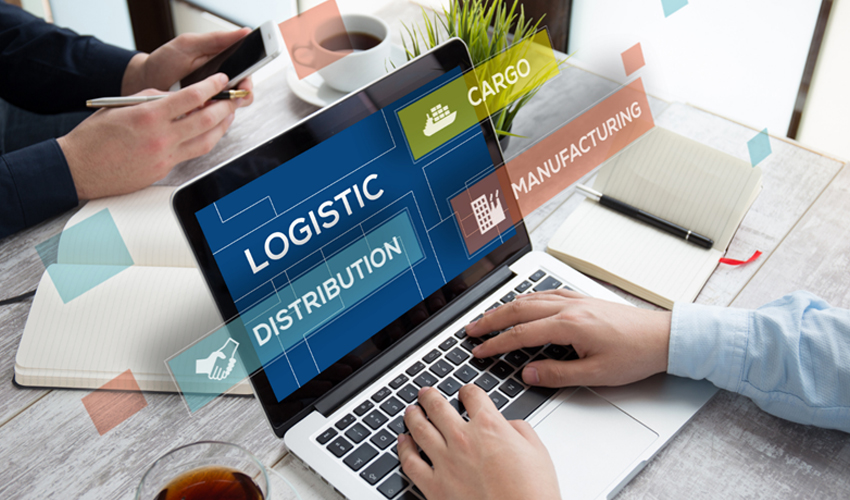

In today’s digital environment, clients demand 24/7 accountability and traceability of their goods and products. A professional logistics provider has to be technologically adept so that it can cater for real-time tracking and visibility along the supply chain. It needs to offer digital integration not only with its client’s processes but also provide additional warehouse management systems (WMS) and enterprise resource planning (ERP) structures so that you can keep ‘eyes’ on your goods from beginning to end.
What’s more, as most transactions and interactions with all players along the supply chain occur digitally, your prospective logistics partner also has to be technologically savvy so that it can conduct business effectively.
Forward-thinking logistics companies in Saudi Arabia like SBT are already incorporating digital devices, machine learning, and IoT into their logistics functions so that they can optimize operations and reduce inefficiencies. When a logistics providers’ processes become increasingly streamlined through digital implementations, it can pass its cost benefits to you to make the movement of goods considerably cheaper. Processes like advanced shipment tracking, for example, can give you more visibility over the status of your shipments. This helps you better plan your other operations accordingly to ensure that you meet timelines.
Benefits of selecting a reliable logistics partner


The right kind of logistics partner can make or break your business. Logistics in Saudi Arabia is poised to grow exponentially as a sector as the country becomes a dominant player in the market. With a professional third-party logistics partner, you can simplify your supply chains, optimize warehousing, and prioritize packaging to ensure lower costs and a smoother customer experience.
Listed below are some additional benefits of partnering with a reliable logistics company in Saudi Arabia:
Innovation: When your business enters into a relationship with a reliable and competent logistics firm, no part of the supply chain is left unattended. This is especially true for 3PLs and 4PLs as they bring constant improvement to processes by identifying areas of improvement in need of innovation.
The global marketplace is fiercely competitive, and businesses constantly need to innovate to grow their market share to ward off threats of obsolescence. This is where 3PLs and 4PLs come in—they are companies whose entire business model is to understand areas of weakness to streamline inefficiencies and optimize processes. They improve clients’ supply chains and enhance the logistics experience to deliver quality services. By innovating, a professional logistics company in Saudi Arabia can provide greater flexibility on deliveries as it integrates newer and more durable technologically powered solutions to provide faster and more reliable data to its customers. This data can then be used to analyze trends to identify areas of improvement. These processes help cut costs without compromising on service.
Flexibility:


Good logistics companies in Saudi tend to market themselves based on industry expertise. However, it is important to remember that there are key differences in operations even while there are similarities in pricing and distribution strategies within an industry. Each business is unique, and a qualified logistics company can tailor its supply chain solutions to meet your exact organizational needs and objectives. Moreover, a professional logistics provider can also mold their offerings to suit existing business processes in your company. That’s why when you undertake a long-term arrangement with a reliable logistics company in Saudi, both small and medium enterprises have the flexibility to scale up or down to meet requirements. Your logistics firm can help you meet any expected increases and/or decreases in product demand patterns as and when they arise.
Moreover, good logistics firms have an informed game plan for how they intend to achieve more with less, and how they can pass on those savings to you. An experienced logistics company in Saudi Arabia will have in-house services as well as networks managed by subcontractors and other small local carriers or entities. In the event of any disruptions, it’ll be far better placed to activate these channels in the supply chain and can easily meet requirements through real-time flexibility and agility. You want this experience on your side if you hope to grow as a company. A logistics company like SBT that has local experience in Saudi will be capable of responding quickly to offer quick and effective solutions to a customer’s-specific situation or changing regulatory requirements.
Risk Management:


Partnering with an experienced and reliable logistics service provider can help businesses mitigate risks that are inherent to the transportation of goods. A good relationship with your logistics partner entails having designated points of contact for scheduling loads and receiving information. A 3PL company that values customer service can greatly reduce confusion and apprehension on the part of the shipper through swift responses and detailed engagement with customer inquiries. When you have a 3PL working for you, you don’t need to worry about the safety of your freight as these logistics firms have strict standards for carriers (based on safety scores, track record, insurance, and customer preferences).
While pricing can influence your decision-making and selection process, it is important to remember that you can’t afford to forsake quality and professionalism for lower prices. The cheapest option is not necessarily the right one. Compromising important features and services for a lower price point can have a detrimental impact on your supply chain to impact your product quality and customer satisfaction. The overall value, optimization, and efficiency that your logistics partner can add to your business can help you profit and grow.
The right logistics company values its customers. When you have the right kind of logistics company in Saudi Arabia supporting your business, you’re ensured that your transportation, warehousing, and logistics are taken care of. Professional, established, and experienced companies like SBT Logistex employ modern and forward-thinking processes that can customize solutions to meet your supply chain needs.
To find out how we can plan logistics in Saudi Arabia and internationally for your business, get in touch.
